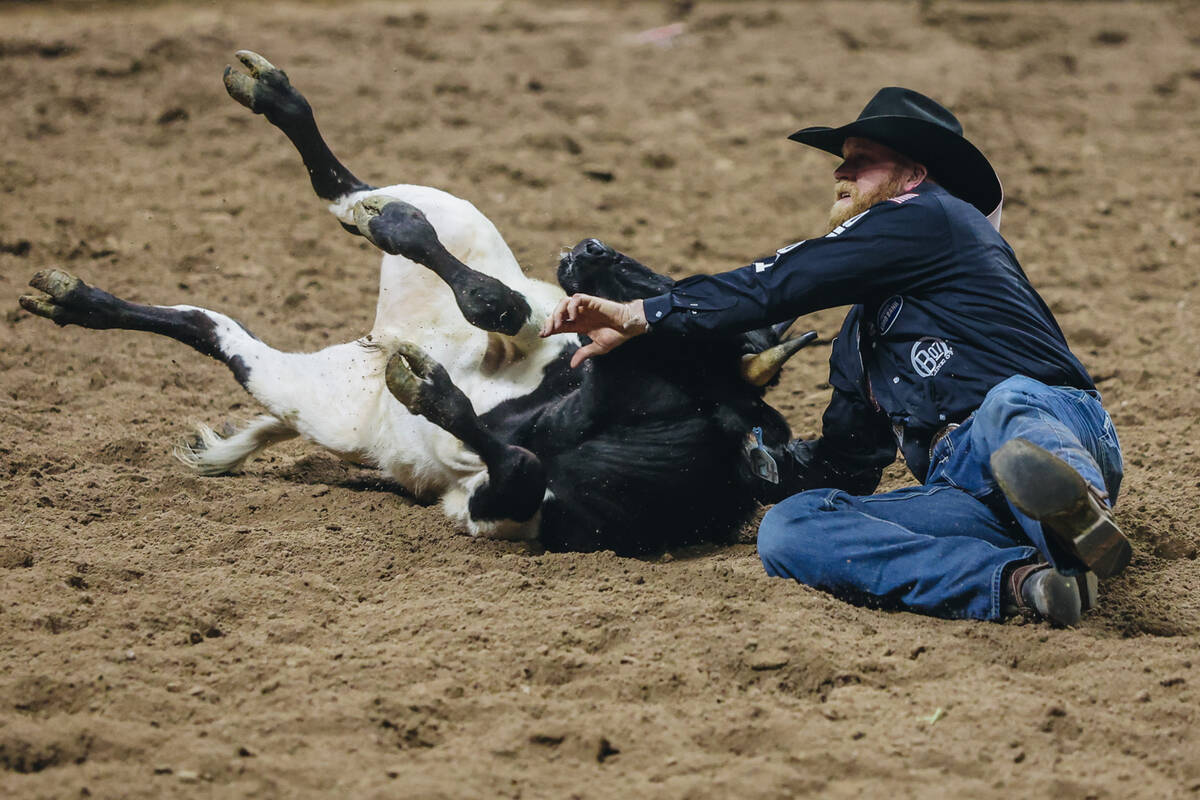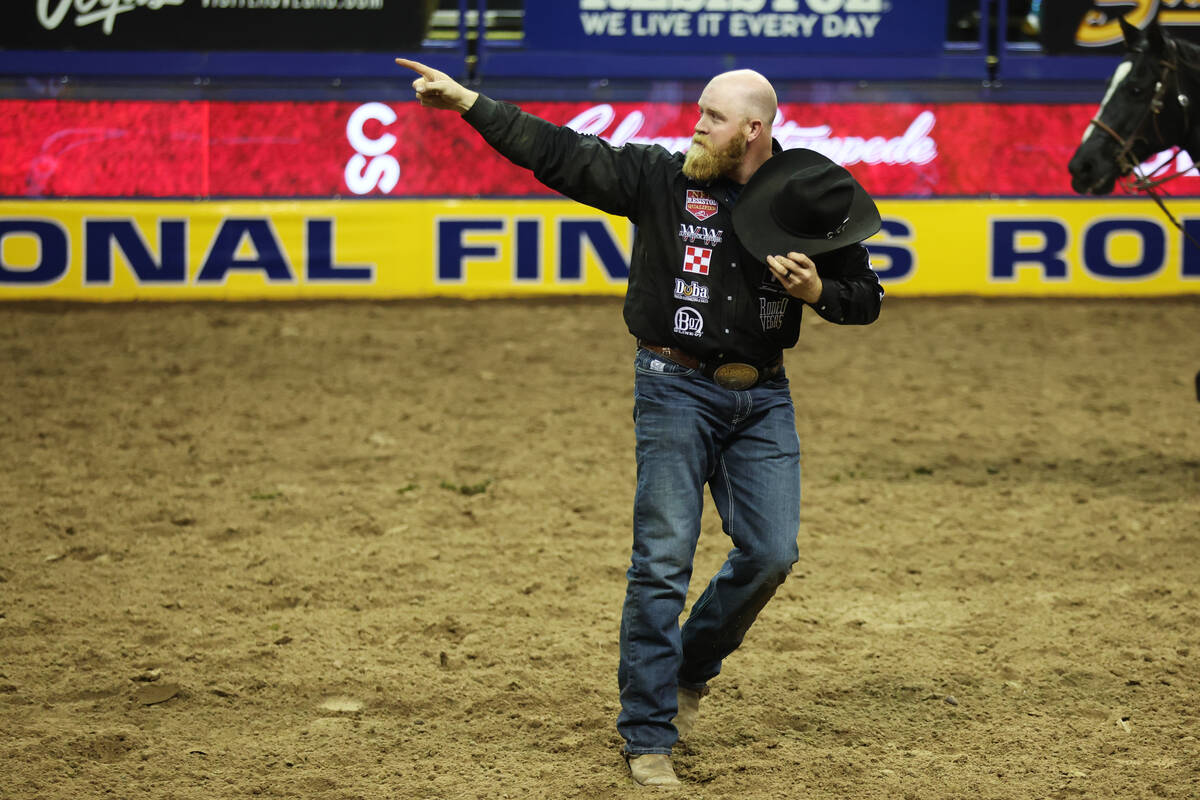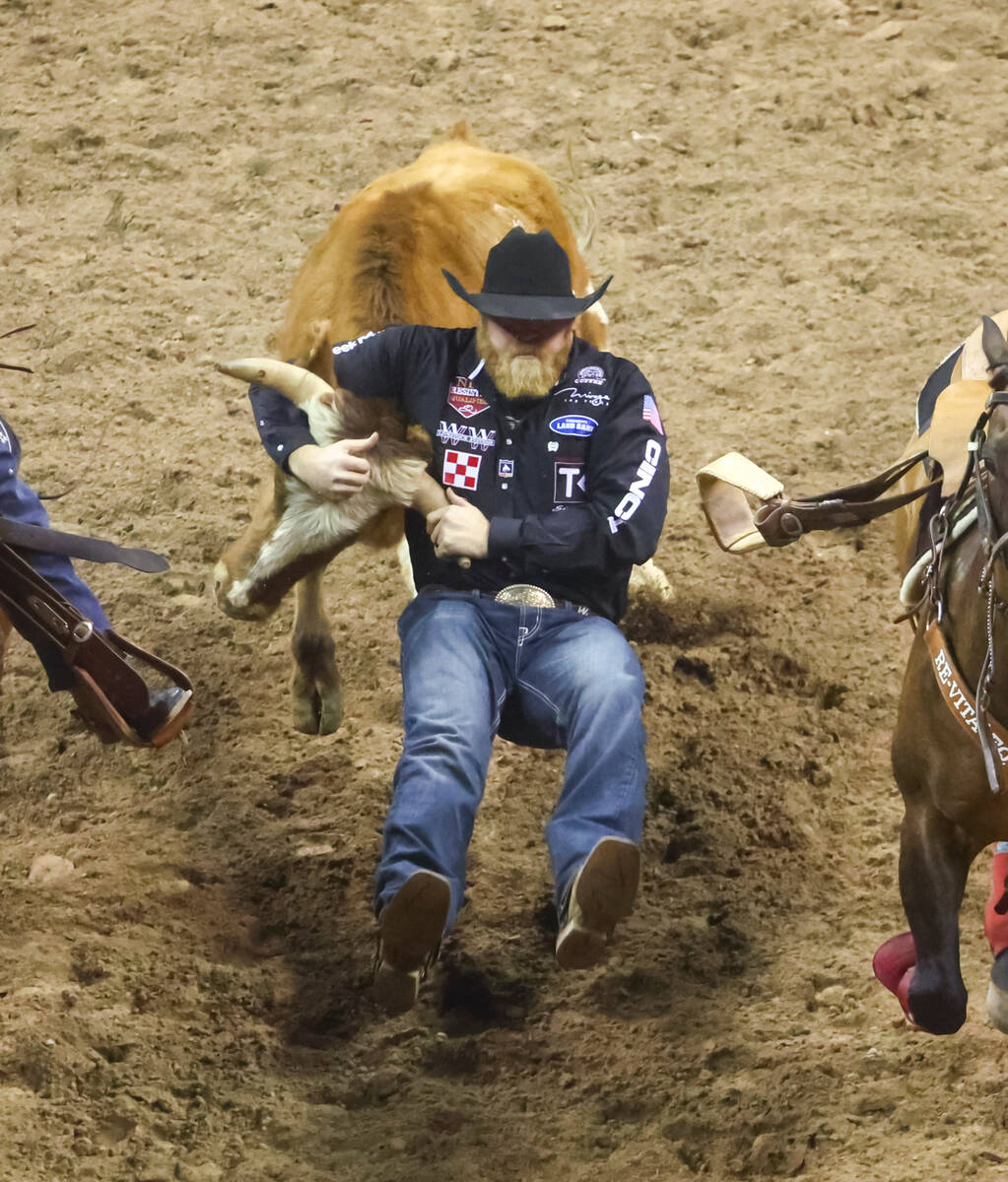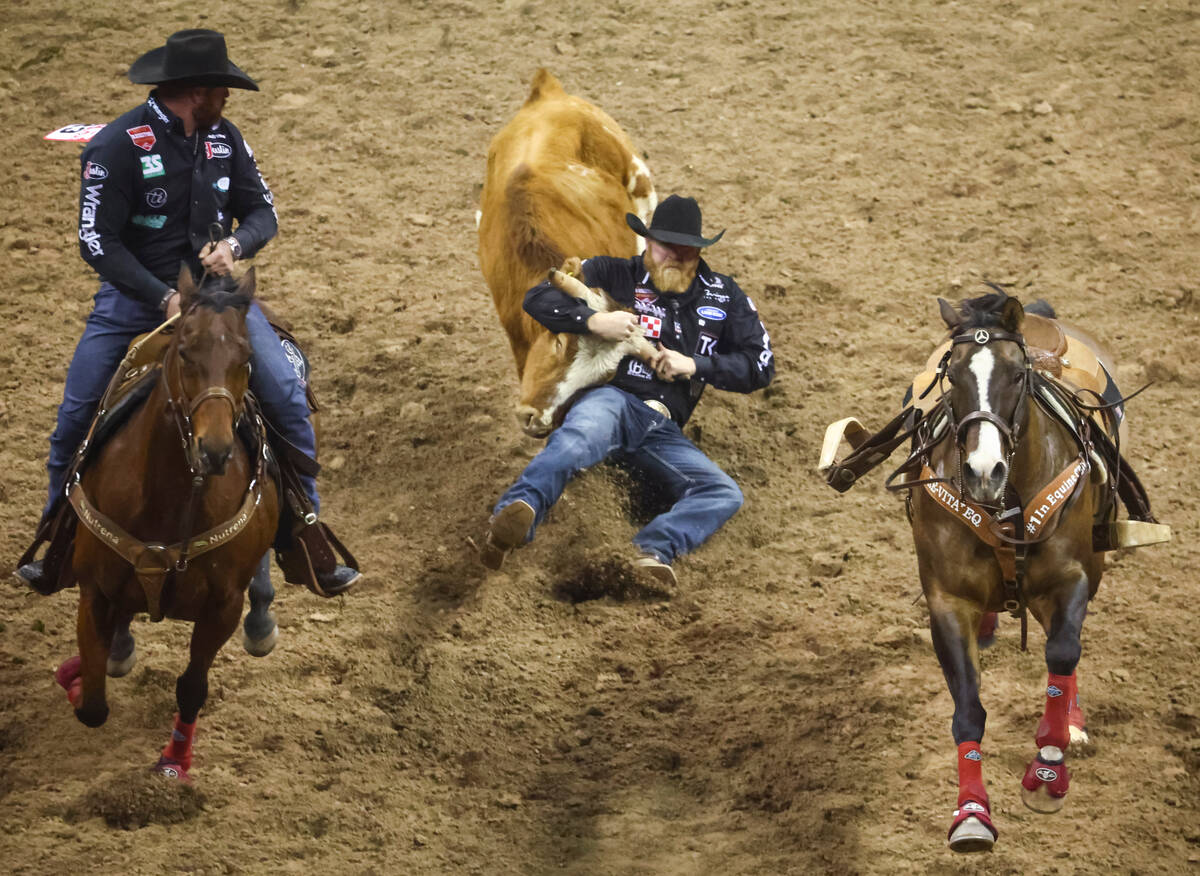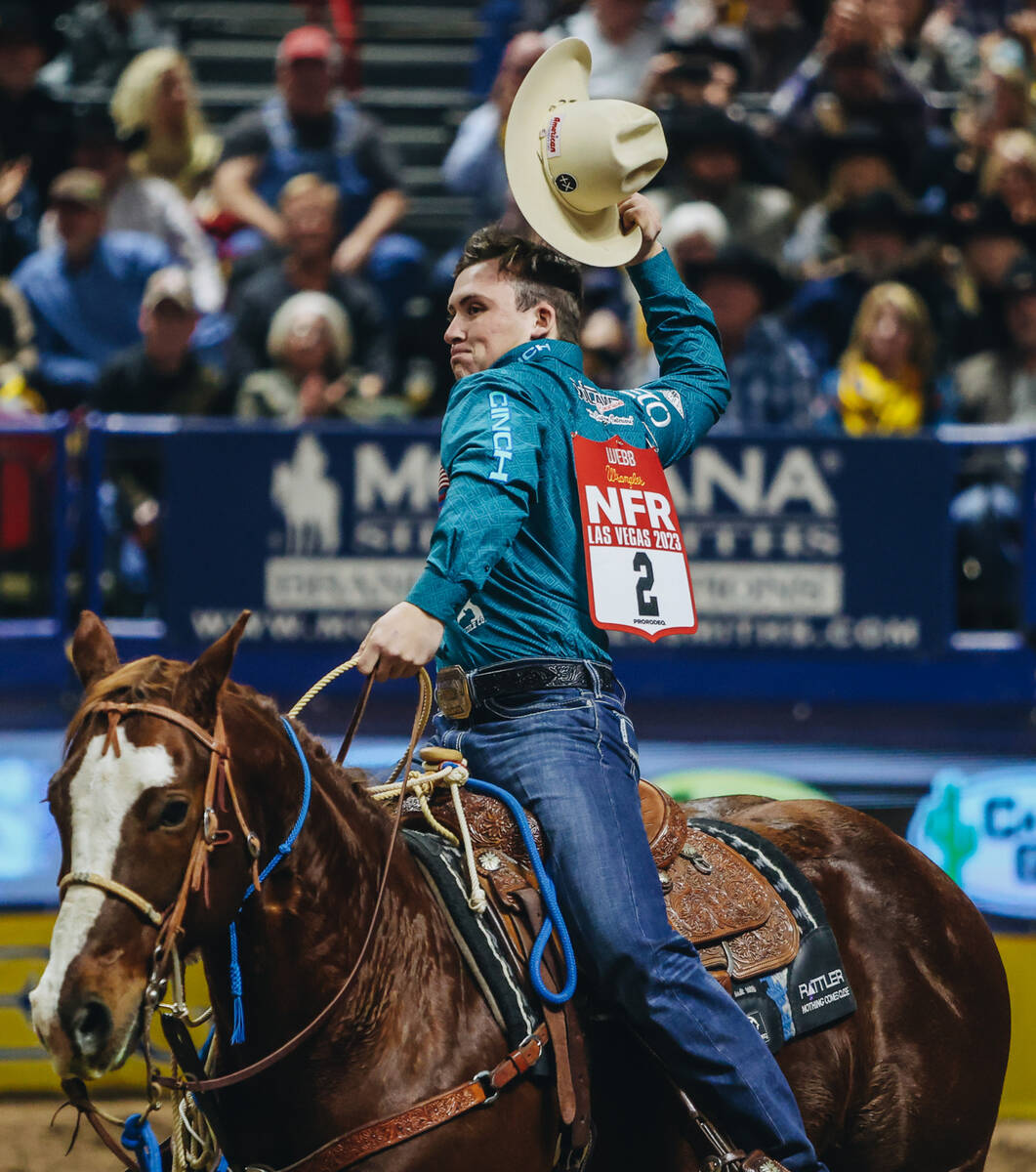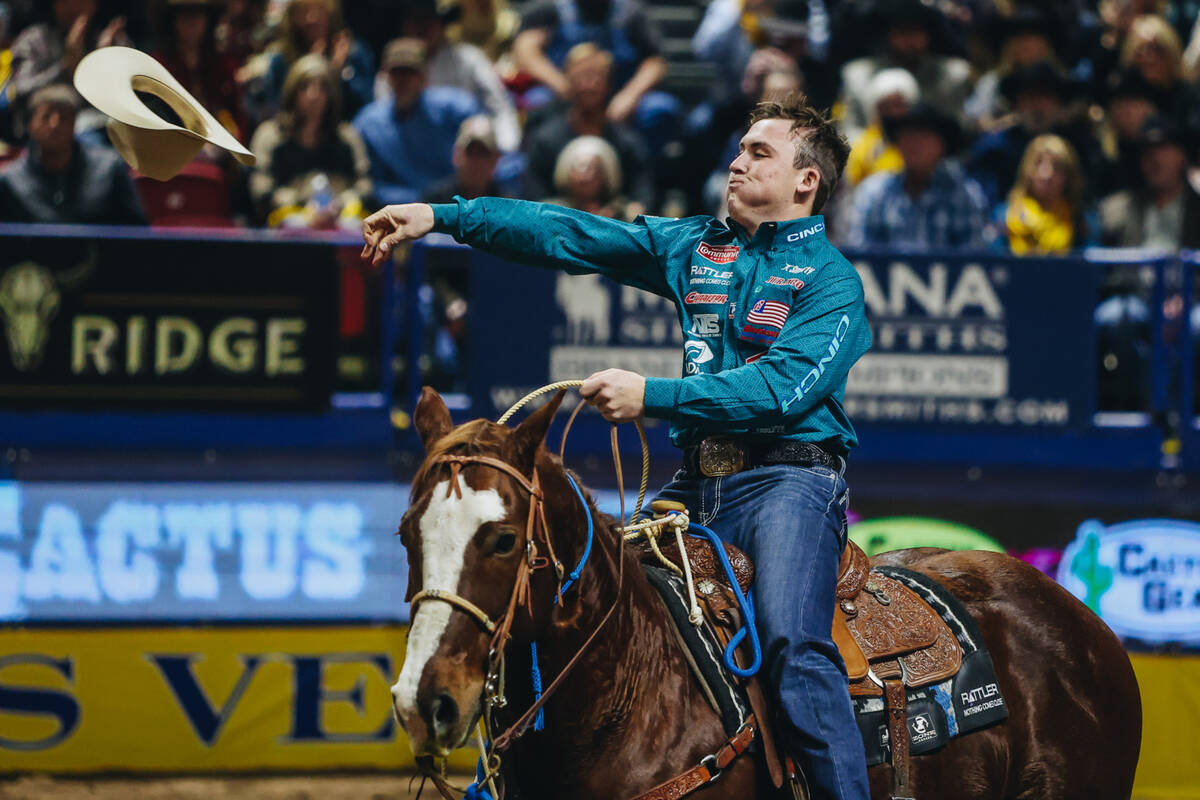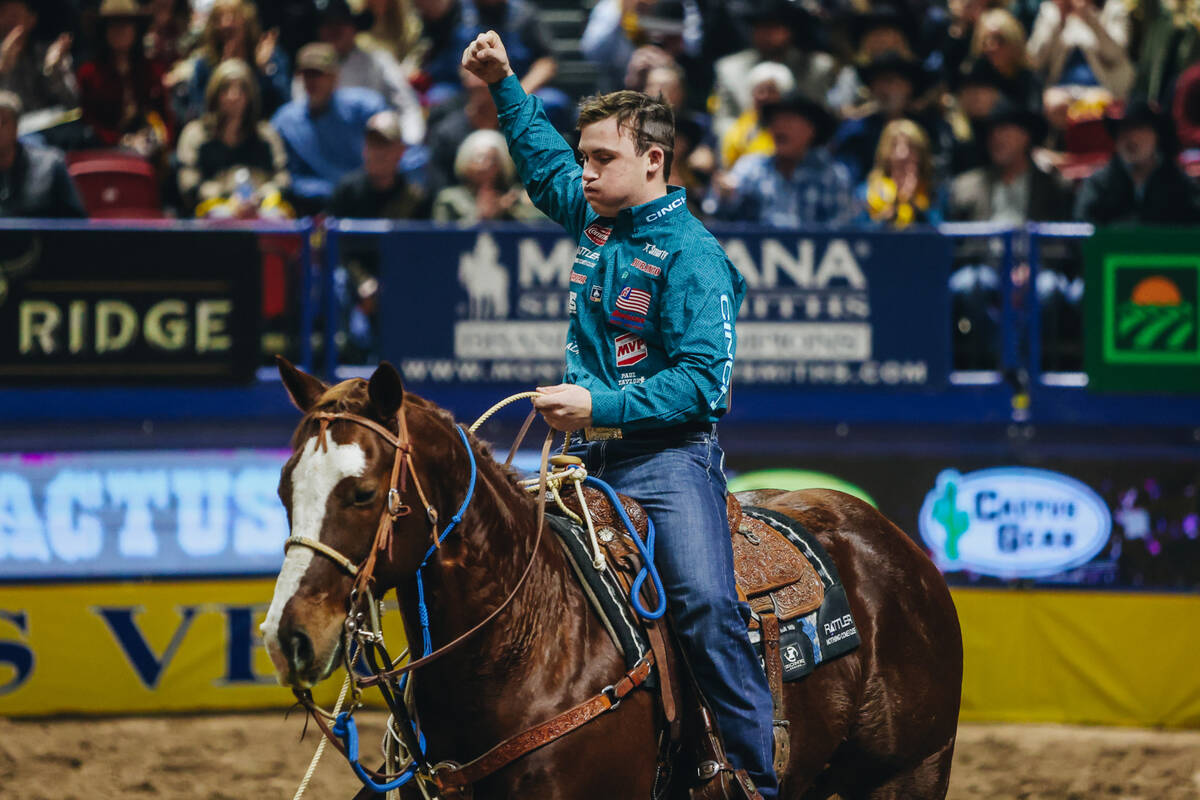NFR Day 3: College rodeo coach still showing kids how it’s done
Will Lummus wanted to give back, to tap into the minds of young rodeo athletes, to use his experience in the sport as a way to create stars of tomorrow.
What better way than coaching?
The six-time competitor and steer wrestler at the National Finals Rodeo is in his second season leading the rodeo team at Northwest Mississippi Community College.
“I don’t think there are a lot of guys coaching right now who have been on the biggest stage,” Lummus, 31, said. “I have a lot of knowledge in terms of the travel and entering rodeos and really just figuring out how to be a winner and when to take chances and all of that.
“I have a lot to offer, and it has been really fun.”
It hasn’t stopped him from succeeding in his own right.
Lummus entered the NFR ranked No. 4 in the world after winning seven events this season. In between, his Northwest team has placed in nearly every fall rodeo, including an outright team victory at Murray State.
Kids can also be teachers. They’re different now than a decade ago, smarter when it comes to rodeo, far more athletic, more able to figure things out at a faster pace.
More able to even remind the best of the best about some important qualities.
“They’ve taught me pretty much everything I had learned but had forgotten,” Lummus said. “When I was in college, the mental side of things wasn’t as (prominent). But it has been awesome watching them use that side of things. It has been really rewarding for me to go back and learn that kind of stuff.”
Ric Griffith knows something about what Lummus is experiencing. A whole lot, actually. Thirty-three years worth.
That’s how long he has coached UNLV’s rodeo team, which has won 15 national championships under his direction.
He too agrees about the progression of up-and-coming rodeo athletes in these times, about their improved skills and mindset. Technology also plays a huge part in producing the best young competitors. Anyone with a smartphone nowadays can film a teammate’s run and instantly offer an evaluation of it.
It goes a long ways over being told what went right or wrong by a coach.
“We’ve been blessed to have some of the best athletes in the world,” said Griffith, whose team holds its home rodeos at the South Point. “They come out of high school willing to learn and get an education and rodeo.
“I really think it’s because they’re forced to practice. Some of our athletes practice in a month more than they probably have in their lives. But if you think you know it all, you shouldn’t be coaching.”
In building a champion, Griffith points mostly to certain tools each athlete needs. That they aren’t the same for everyone. That a kid might not know much about rodeo to start, but discovering the best ways of attacking an event for themselves goes a long ways in winning.
Lummus too understands the importance of individuality in a team sport at the college level. He speaks of the next generation of the rodeo athlete, one who enjoys far better resources and advantages than he had as a young competitor.
“There’s a lot of talent,” Lummus said. “But they also have access to way better trucks and way better horses and really nice equipment. It all costs more now, so it can be a struggle for some. But if you really want it, you do what’s needed to go out and get it.”
He’s fortunate in that splitting time between his own competitions and those of the team has meshed well, that managing a schedule hasn’t been as difficult as first imagined. He’s not all that busy when spring and fall rodeos occur for his college team.
Coaching fits him. Might even be something he continues to do post-rodeo career.
“Man, I could call it quits today and be happy,” Lummus said. “This is my seventh season. My goal was three to five years. We’re all chasing that gold buckle. I’d love to get one. I guess it’s harder to walk away with how much better the money has gotten. But this is what I love to do.”
That, and inspire the next generation of rodeo stars.
Contact sports columnist Ed Graney at egraney@reviewjournal.com. Follow @edgraney on X.
Webb extends lead in tie-down roping
Coming into his second National Finals Rodeo with the lead in tie-down roping, 20-year-old Riley Webb said his mindset entering the 10-round event was simple.
"Show up every night. Try to do the best I can. Do my job," Webb said.
After struggling on his runs the first two nights, Webb delivered a go-round win with a time of 6.9 seconds and earned $30,706 on the third night of NFR on Sunday night at the Thomas & Mack Center.
"I felt great," Webb said. "I fired out of the box and told myself to live in the moment, have fun and execute the game plan. I did exactly what I wanted to do, and it worked out."
Webb, the 2022 tie-down roping and all-around rookie of the year, leads by more than $87,000 in the tie-down roping world standings. Webb placed fifth on Friday and 12th on Saturday, which did not get him any earnings. He said a mistake Saturday cost him a chance to place.
The Denton, Texas, native said he's become more comfortable in the atmosphere of the sport's biggest event, and learned last year to stay calm before making a run.
"It's the major leagues. I've roped against these guys all year," Webb said. "When we get out there, it's 10 days. If it goes good or bad, you have another 24 hours before you have another run."
In other events, four-time defending all-around champion Stetson Wright did not compete Sunday in his saddle bronc and bull riding runs. Wright fell off early in his saddle bronc runs Friday and Saturday and did not compete in bull riding either night.
According to an injury report from the PRCA, a right hamstring strain forced Wright to miss Sunday's run. It is unclear if he will compete Monday.
Other go-round winners:
— Mason Clements, Spanish Fork, Utah, in bareback riding (88.5).
— Nick Guy, Sparta, Wisconsin, in steer wrestling (4.2 seconds).
— Logan Medlin, Tatum, New Mexico, and Coleman Proctor, Pryor, Oklahoma, in team roping (3.7 seconds).
— Sage Newman, Melstone, Montana, in saddle bronc riding (89).
— Lisa Lockhart, Oelrichs, South Dakota, in barrel racing (13.51 seconds).
— Creek Young, Rogersville, Missouri, in bull riding (89.5).
Alex Wright/Las Vegas Review-Journal



